The WORST episodes of Jazz
Every episode of Jazz ever, ranked from worst to best by thousands of votes from fans of the show. The worst episodes of Jazz!
This series explores the history of the major American musical form. We track its development in African American culture, its rise to prominence with its golden age of popularity spanning from the 1920's to the mid 1940's both in its original form and in Swing through its popular decline and the rise of vital new sub-genres into the present day. Along the way, we learn of the lives and work of major contributors to the form such as Louis Armstrong, Duke Ellington, Billie Holiday, Benny Goodman, Charlie "Bird" Parker and many others who helped form Jazz into the vibrant musical form it is. Moreover, we see how the music reflected the political and social issues of the African American community over the course of the form's history.
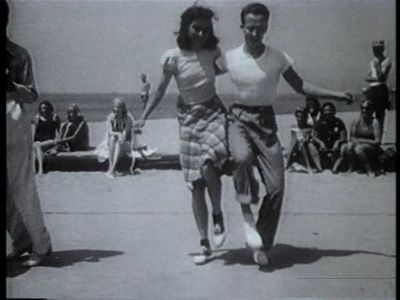
#1 - Swing: Pure Pleasure (1935–1937)
Season 1 - Episode 5 - Aired 1/17/2001
1935 was the year that swing became the most popular music in the country and that the king of swing, Benny Goodman, became a matinee idol. Americans, stifled by the Depression, seemed determined to dance their troubles away. "Swing: Pure Pleasure" follows the continuing careers of Goodman, Artie Shaw, and Armstrong, and the discovery of Billy Holiday.
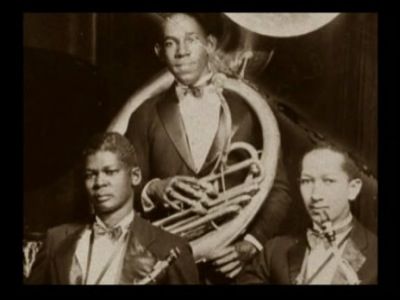
#2 - Our Language (1924–1929)
Season 1 - Episode 3 - Aired 1/10/2001
Colorful characters like the tragic Bix Beiderbecke, powerhouse Bessie Smith, and the braggart Jelly Roll Morton, make the study of jazz fascinating. Perhaps most touching in this episode is the extended portrait of the troubled, white cornet player, Bix Beiderbecke, whose family disapproved of his chosen profession, and who would never be allowed to record with greats like Louis Armstrong due to segregation in the music business.
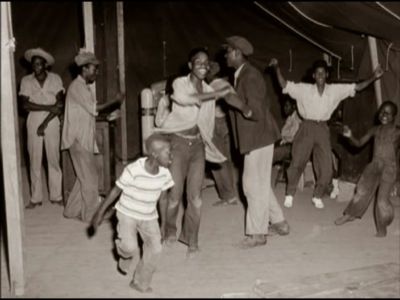
#3 - The True Welcome (1929–1934)
Season 1 - Episode 4 - Aired 1/15/2001
"The True Welcome" continues many of the stories begun in Episode 3, following several troubling years for Louis Armstrong (who was arrested for marijuana possession), Duke Ellington’s growth as a composer, and Benny Goodman discovering gold in Fletcher Henderson’s arrangements. "The True Welcome" also has a nice section on rich kid John Hammond, Sr. who would become one of the biggest promoters of jazz.
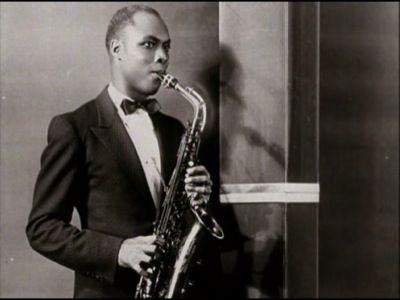
#4 - Swing: The Velocity of Celebration (1937–1939)
Season 1 - Episode 6 - Aired 1/22/2001
Swing would be reacquainted with its blues roots by way of Kansas City, when Count Basie and the Barons of Rhythm brought their hot sound to the Big Apple. Basie would also give Billie Holiday her first break, offering her a chance to travel, perform, drink, and gamble with the rest of the band. Another young singer named Ella Fitzgerald would get her start in Chick Webb's band at the Savoy Ballroom, and then be named top female vocalist—over Billy Holiday—by Down Beat in 1937.
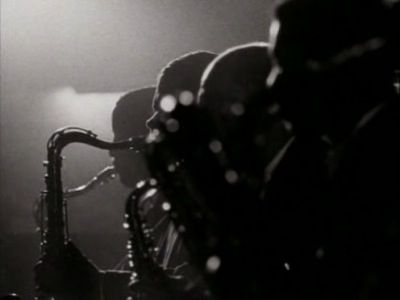
#5 - A Masterpiece by Midnight (1960 to the Present)
Season 1 - Episode 10 - Aired 1/31/2001
Obviously Ken Burns knows that he can't fit the last thirty-nine years of jazz history onto two hours of video tape, so from the outset, that shouldn't be expected. There's an excellent biography of John Coltrane, and footage of Miles Davis' wonderful mid-’60s quintet. There is also a nice, small section on the magnificent Charles Mingus.
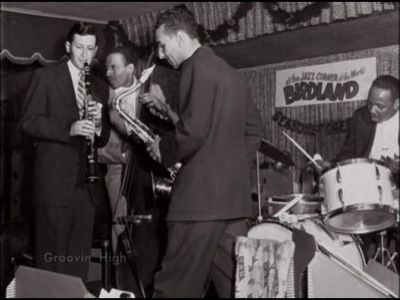
#6 - Risk (1945–1955)
Season 1 - Episode 8 - Aired 1/24/2001
The bop revolution's influence would spread to other musicians, but unlike swing, it would never become a popular music. The rapid-fire solos and complicated chord structures made bop a musician's music, unfit for dancing. Indeed, Charlie Parker and Dizzy Gillespie’s music even alienated established musicians like Armstrong. "Risk" provides an in-depth biography of the bright, brief life of Parker, and includes interviews with his former wife.
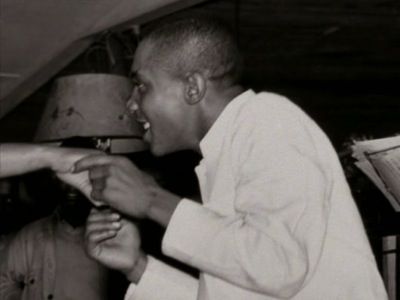
#7 - Dedicated to Chaos (1940–1945)
Season 1 - Episode 7 - Aired 1/23/2001
"Dedicated to Chaos" finds jazz musicians teetering on the brink of the modern era, fighting against the straightjacket of clichéd, big band arrangements. The revolution started at Minton's Playhouse, a rundown club where musicians like Thelonious Monk, Dizzy Gillespie, and Charlie Christian jammed on Monday nights. When they hooked up with a young saxophone player from Kansas City named Charlie Parker, the bop insurgency had arrived.
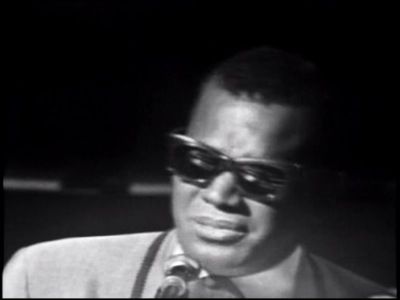
#8 - The Adventure (1956–1960)
Season 1 - Episode 9 - Aired 1/29/2001
Critics who had believed that Charlie Parker was "too much" musically, could not have welcomed the arrival of Ornette Coleman. Coleman and John Coltrane would edge jazz toward even more freedom, eventually dropping all traditional structures. While these artists alienated many listeners, Miles Davis would record the most popular jazz album of all time, Kind of Blue.
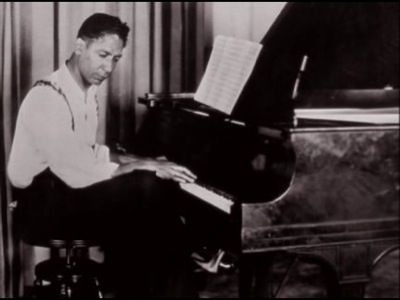
#9 - Gumbo (Beginnings to 1917)
Season 1 - Episode 1 - Aired 1/9/2001
"Gumbo" traces the roots of jazz from the 1800s to 1917. The viewer will catch glimpses of Jelly Roll Morton, who erroneously claimed to have invented jazz, and the tragic, though influential, figure of trumpeter Buddy Bolden.
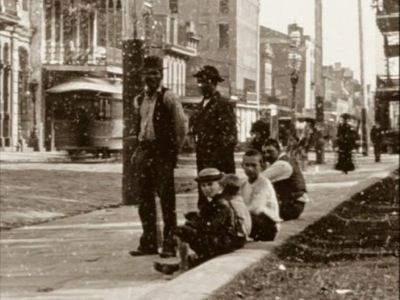
#10 - The Gift (1917–1924)
Season 1 - Episode 2 - Aired 1/9/2001
How can one explain the genius of a Louis Armstrong or Duke Ellington? Blessed with skill and talent far exceeding their peers, one can only define what they possess as a gift from the gods. These early portraits are imperative, because both figures have been so canonized that it is easy to forget the significance of their gifts.